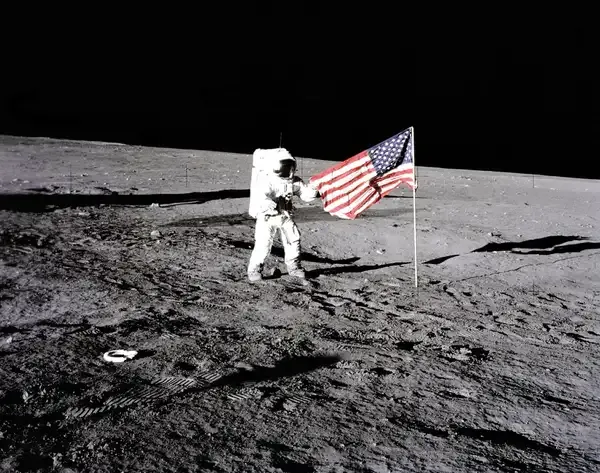How Many People Have Been to the Moon?
As of now, 24 astronauts have traveled to the Moon, all during NASA's Apollo program between 1968 and 1972. Of these, 12 have actually walked on the lunar surface. The first successful manned mission was Apollo 11 in 1969, with Neil Armstrong and Buzz Aldrin becoming the first humans to set foot on the Moon. Subsequent missions, including Apollo 12, 14, 15, 16, and 17, continued to explore the lunar landscape, each bringing back valuable scientific data and samples.

The question of how many people have been to the Moon is often a point of curiosity and fascination for many. The answer, while straightforward, reveals the incredible achievements of humanity in space exploration. As of now, a total of ''twelve astronauts'' have set foot on the lunar surface, all of whom were part of NASA's Apollo program between 1969 and 1972. Below, we will explore the specifics of these Moon landings and the astronauts involved in this historic endeavor.
List of Apollo Missions and Astronauts Who Landed on the Moon
The following table summarizes the Apollo missions that successfully landed astronauts on the Moon:
| Mission | Landing Date | Astronauts Who Walked on the Moon |
|---|---|---|
| Apollo 11 | July 20, 1969 | Neil Armstrong, Buzz Aldrin |
| Apollo 12 | November 19, 1969 | Charles "Pete" Conrad, Alan Bean |
| Apollo 14 | February 5, 1971 | Alan Shepard, Edgar Mitchell |
| Apollo 15 | July 30, 1971 | David Scott, James Irwin |
| Apollo 16 | April 21, 1972 | John Young, Charles Duke |
| Apollo 17 | December 11, 1972 | Eugene Cernan, Harrison Schmitt |
Each of these missions contributed significantly to our understanding of the Moon and space travel. ''Neil Armstrong'' became the first human to walk on the Moon during the Apollo 11 mission, famously declaring, "That's one small step for man, one giant leap for mankind." This moment marked a pivotal point in human history and the exploration of outer space.
Details of the Apollo Missions
The Apollo program was a monumental achievement in the field of ''space exploration''. Each mission had specific goals, ranging from landing on the Moon to conducting scientific experiments and gathering lunar samples. The astronauts who participated in these missions faced numerous challenges, including the complexity of lunar landings and the dangers of deep space travel.
During these missions, astronauts conducted various scientific experiments, collected lunar rocks, and took thousands of photographs. The data obtained from these missions have been invaluable for scientists and researchers, contributing to our understanding of the Moon's geology and the history of our solar system.
Achievements Beyond the Moon Landings
The Apollo missions not only showcased the bravery and skill of the astronauts involved but also highlighted the technological advancements achieved during this era. Innovations in ''navigation systems'', ''life support technologies'', and ''engineering'' were developed to ensure the safety and success of these missions. The technology developed for the Apollo program has had lasting impacts, influencing various sectors, including ''communications'', ''materials science'', and ''robotics''.
The Legacy of Apollo Astronauts
The twelve astronauts who walked on the Moon have left a legacy that continues to inspire generations. Their journeys helped to fuel interest in space exploration and have led to the development of future missions aimed at returning humans to the Moon and eventually sending them to Mars. Notably, the Artemis program aims to land the next astronauts on the lunar surface, including the first woman and the next man by the mid-2020s.
Moreover, the stories of these astronauts have become part of a larger narrative about human ambition, exploration, and the quest for knowledge. As we look to the future, the accomplishments of the Apollo program serve as a powerful reminder of what humanity can achieve when we work together towards a common goal.
Conclusion
In summation, a total of ''twelve astronauts'' have had the unique honor of walking on the Moon. The Apollo missions represent a pinnacle of human achievement in space exploration, paving the way for future endeavors in outer space. As interest in lunar exploration rekindles, the legacy of these pioneers continues to inspire new generations to look to the stars.
For those interested in the intersection of ''space exploration'' and technology, the Apollo program remains a compelling chapter in the story of human ingenuity and determination. Whether through educational programs, documentaries, or ongoing research, the impact of these twelve astronauts will be felt for decades to come.












